Sour crop in chickens is a health concern that many keepers don’t anticipate. Yet, like all animals, birds can suffer from a wide range of ailments.
It’s important for chicken keepers to know what a sour crop is so they can prevent it and treat it if necessary. Let’s take a look at what it is, how it happens, and what can be done about it.
What is a Chicken Crop?
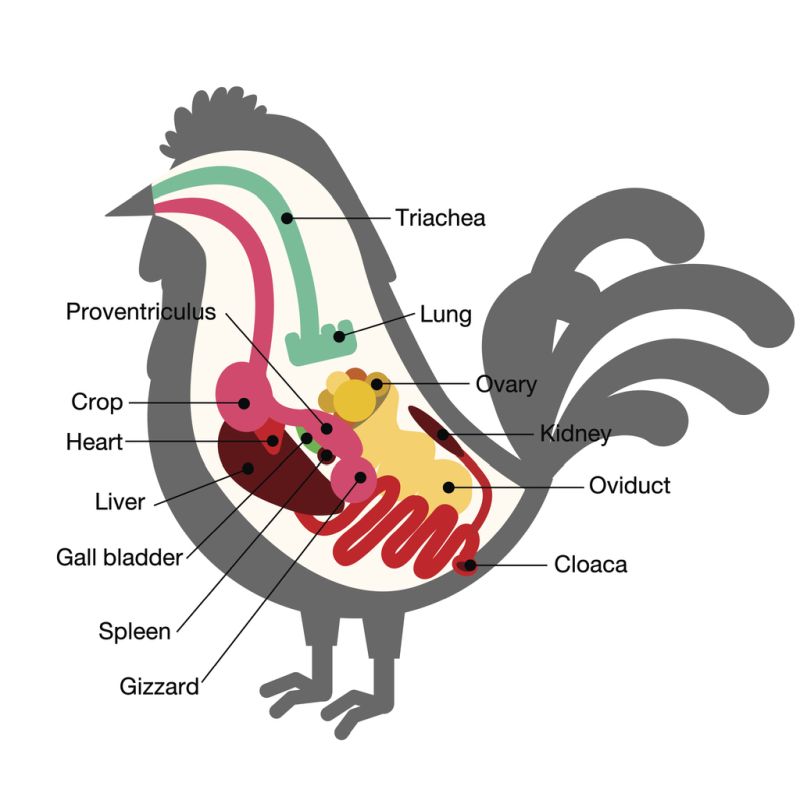
A chicken’s crop is where the food they’ve eaten sits before going through the digestive system. It’s located inside the chicken, beneath their neck and in the center of their chest. The crop has bacteria that helps break down the food before it gets fully digested.
The crop is about three inches long, which takes up a fourth of a chicken’s digestive system. When a chicken eats food, it goes into their mouth, through their esophagus, into the crop, and then through the proventriculus and gizzard.
A chicken’s crop is an essential internal organ, so it needs to stay healthy like all their other body parts.
Sour Crop in Chickens
A sour crop in chickens is an infection that thickens the organ’s walls and prevents it from draining properly. It’s usually caused by toxic materials or food clogging the crop. If not treated in time, it could require surgery or possibly lead to death.
Symptoms of Sour Crop
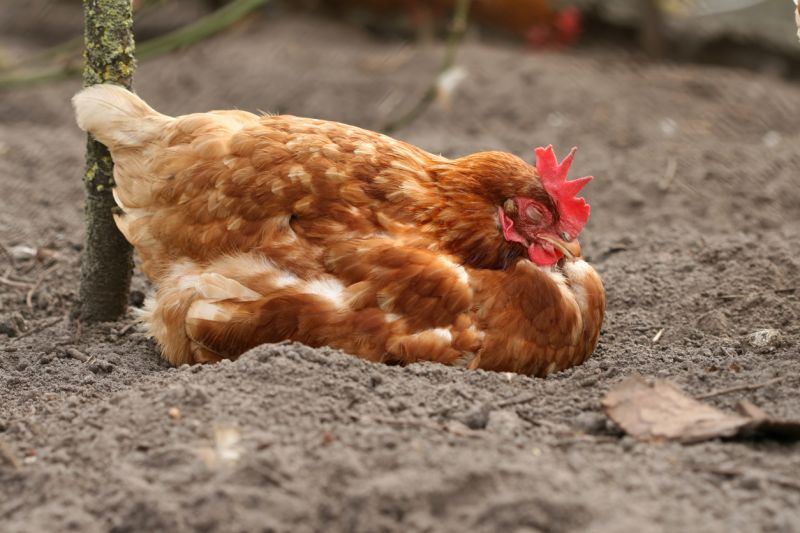
Since a sour crop occurs inside your chicken’s body, it’s more difficult to spot than exterior symptoms. If you suspect that your hen has a sour crop, an easy way to confirm that is to remove their food and water for the night. If a chicken’s crop is bulging and squishy instead of flat, they most likely have a sour crop.
Yet, if a chicken’s crop feels hard instead of squishy, that’s likely an impacted crop, which is a similar issue. It’s caused by large items that weren’t able to pass through your bird’s digestive system. Both sour crops and impacted crops have similar symptoms.
Here are some other signs that your chicken could have a sour crop:
- Loss of appetite
- Lethargy
- Foul smell coming from beak
- Weight loss
- Vomiting
- Diarrhea
- Decreased egg production
What Causes a Sour Crop in Chickens?
There are many causes for sour crop in chickens, but it might be difficult to discover one specific reason. Here are some explanations as to why your chicken might’ve gotten it.
Long Pieces of Grass
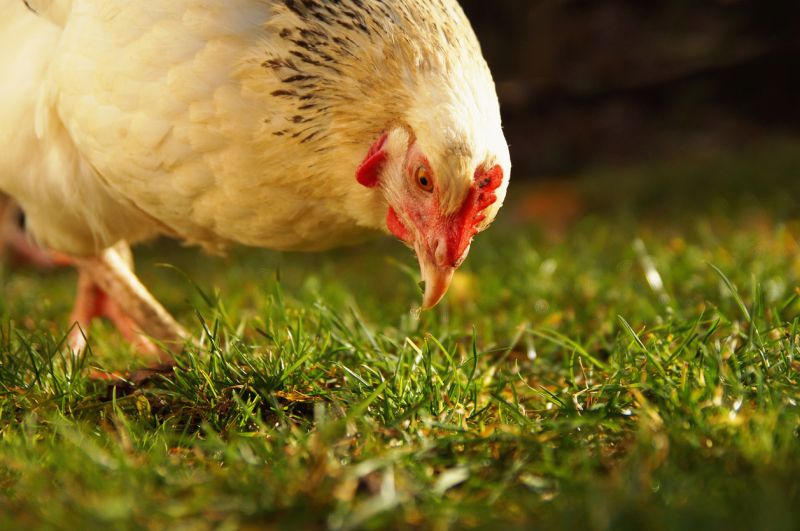
It’s normal for chicken to eat grass, but in the spring, they might eat an excess of it because it hasn’t been available to them in a while. If they eat too many long, stringy blades of grass, they might not be able to digest them efficiently.
Long pieces of grass can get balled up inside a chicken’s crop, causing a blockage. Even a few pieces could cause the crop not to drain properly.
Moldy Food
Moldy food can cause all kinds of internal health problems for chickens. It can change the crop’s pH balance, which can affect how it passes food. Chicken food should be replaced regularly to avoid this issue and many others.
Too Much Bread
Many people mistake bread for a healthy snack for birds. However, too much bread, pasta, and similar grains are unhealthy for chickens and can lead to concerns. Chickens could have a hard time digesting the bread, making it build up in a chicken’s crop.
Worms
Worms found in a chicken’s digestive tract can also cause the crop to not drain properly. A thread worm is the most common worm that affects a chicken’s digestion. Worms in a bird’s body can take nutrients that the animal needs, leading to a loss of appetite and malnourishment.
The dirtier your chicken’s enclosure is, the more likely they are to get worms and other parasites.
Antibiotics and Infections
If your chicken is taking antibiotics to treat an infection, there’s a chance that it could cause a sour crop. Antibiotics are supposed to kill the bad bacteria in an animal’s body, but they could accidentally remove the good bacteria too.
So, if your chicken has an infection, ask your vet which type of antibiotics are safest for them. Infections without antibiotics can lead to a sour crop too.
Internal Injuries
Chickens are rarely picky eaters. They’ll usually gobble up whatever they can find. Sometimes, this can mean dangerous objects, such as sharp or toxic materials. Eating things they’re not supposed to could cause the crop to get damaged while trying to pass the materials through the digestive process.
How to Treat Sour Crop in Chickens
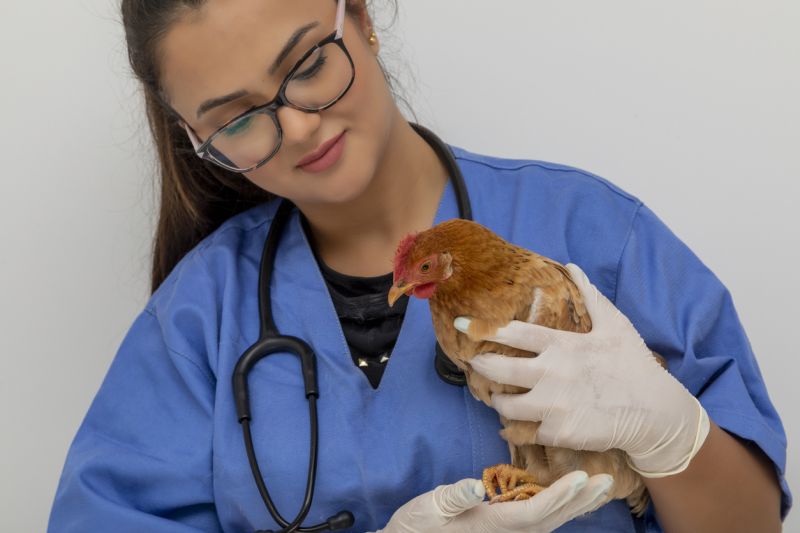
There are several ways to treat a sour crop in chickens, depending on the severity of the condition. Here are some remedies to try. You may need to isolate your chicken for best results.
Limit Food Intake
Limiting your chicken’s food or even removing it for a night might solve the problem. A smaller food intake will give your chicken’s crop more time to process the food that’s already inside it. If the crop is still enlarged and squishy after a day, you’ll need to try a more intense treatment method.
Serve Special Foods
Certain ingredients can enhance your chicken’s digestion, making it easier for them to pass food through their crop. Yogurt, apple cider vinegar, tomato juice, and molasses are all items that can help get your chicken’s digestive system running again.
Grit is an ingredient that you should add to your chickens’ regular diets to improve their overall digestion.
Help Remove Fluids
If limiting food and adjusting diets don’t help your chicken’s sour crop, then you’ll need to take matters into your own hands. There are ways for you to help remove the excess fluids clogging the crop.
To help free any items lodged in your chicken’s digestive tract, hold the bird upside down and rub the area near their crop toward their head. If done correctly, your chicken will vomit to remove anything harming their crop. Yet, this method won’t cure every case.
Visit a Vet
If you’ve tried everything else but your chicken is still suffering, it’s time to turn to a professional. Some keepers take their chickens to a vet instead of trying methods themselves just to be safe. If your chicken’s crop has been enlarged for several days, a vet visit is a must.
A vet that has experience with birds can assess the situation and give you the best treatment suggestions. In most cases, they can fix the problem with simple methods, but if you wait too long to take them in, surgery may be necessary. Surgery is more common in impacted crops than sour ones.
How to Prevent Sour Crop in Chickens
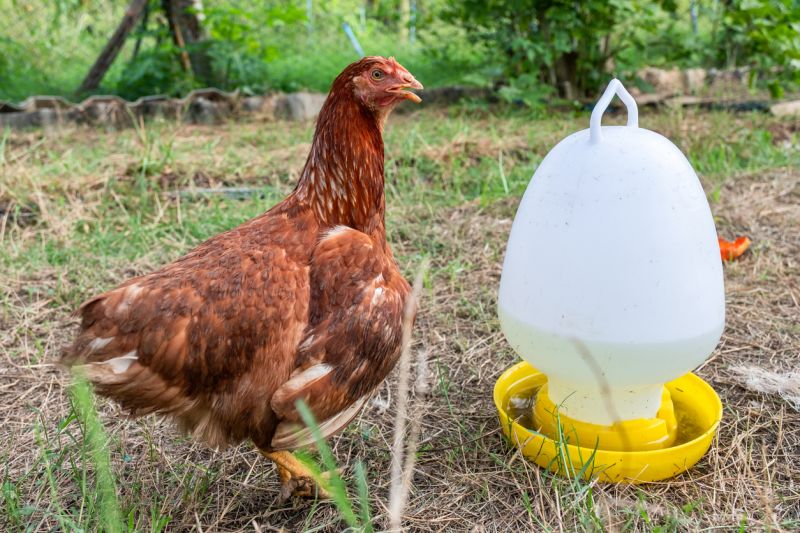
Even if your chicken doesn’t have any unusual symptoms, you can still prevent this health concern from happening in the future. Here are some ways to ensure your chickens don’t get sour crops.
Keep Your Coop Clean
Cleaning your chicken enclosure regularly is the best way to protect your flock from all types of diseases. Chickens who live in a clean environment are less likely to consume hazardous materials, such as parasites and sharp objects.
It’s also crucial to replace their food and water daily or whenever it looks gross. That way, your chicken won’t have access to moldy food or anything else toxic.
Avoid Dangerous Areas
Free range time is important for many chickens, but the area in their coop and outside of it should be kept as safe as possible. If people regularly drop tools, food scraps, and other litter near the chicken enclosure, it might not be safe to give them free range time.
Make sure all the places your chickens hang out in are free of garbage and other unwanted materials. You may also want to keep the grass short to avoid long blades clogging their crops.
Help with Their Digestion
There are materials you can include in your chicken’s diets every day to promote healthy digestion. Grit is a common choice, but you can also consider ingredients like apple cider vinegar, plain yogurt, or poultry probiotics. Regular digestion items can help reduce the risk of internal problems.
Take them in for Health Checkups
The best way to keep any animal in good shape is to visit the vet regularly. Chickens might not need check-ups as often as dogs and cats, but it can’t hurt to take them in every now and then. Your vet may be able to spot internal health problems that you wouldn’t have noticed on your own.
Final Thoughts
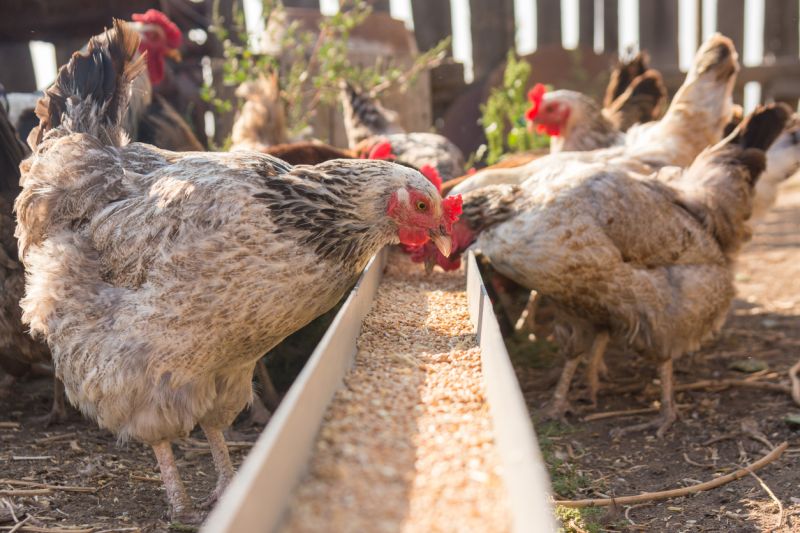
Healthy chickens produce healthy eggs and chicks, depending on what you’re raising them for. So, it’s important to stay on top of your chickens’ well-being to ensure that they live long, productive lives.
A sour crop in chickens happens more often than most keepers realize. Chickens love to eat, so it’s common for them to eat too much or eat hazardous items. If you notice any unusual behaviors in any of the animals in your care, address the issues before it’s too late.
A sour or impacted crop can be a minor issue if it’s caught early on, so don’t ignore the warning signs.